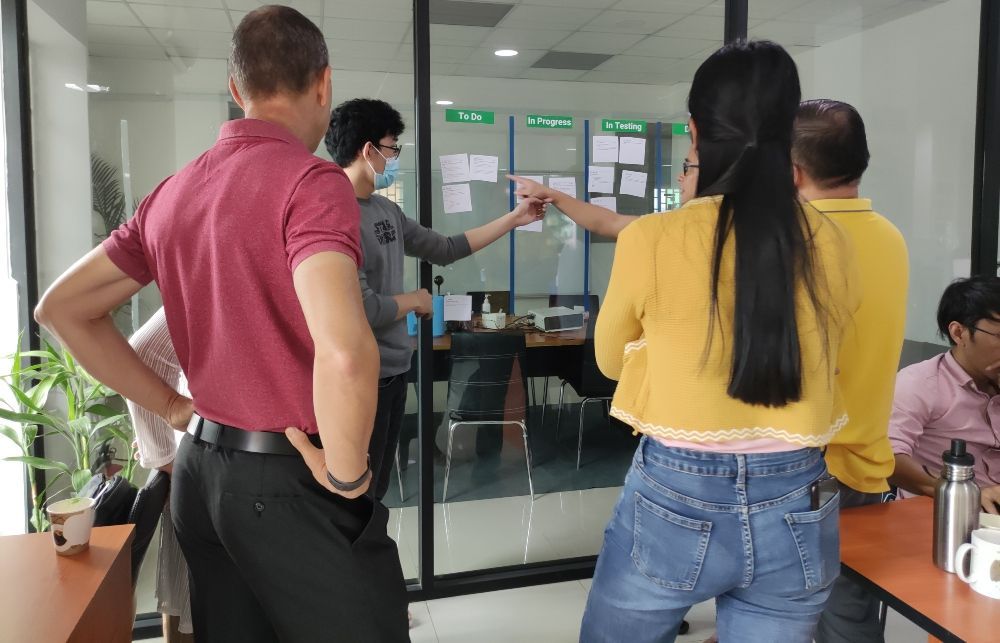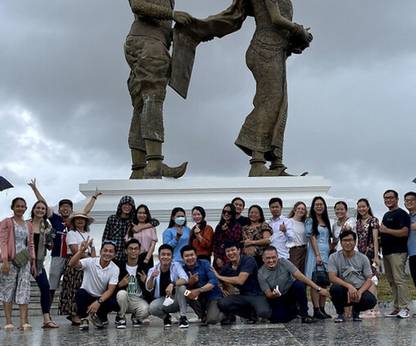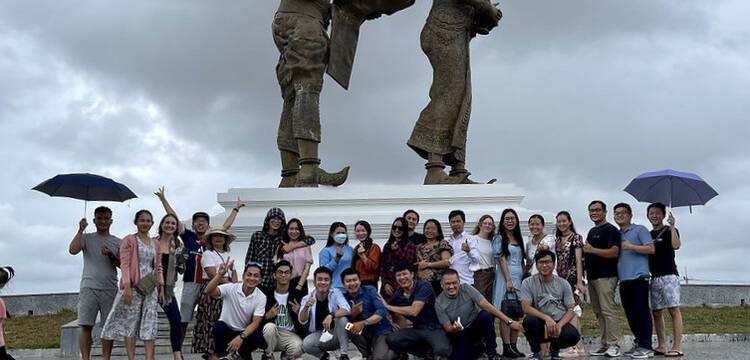The lockdown announcement sent people from all sectors racing to workplaces across the city, to ensure their team had what they needed to work from home and function as a business before the full restrictions came into force.
Web Essentials is very proud of the infrastructure we have worked hard to build. Our DevOps team has invested in innovation and we know that even as a small-medium business, our technical set up for deployment is one of the best in Cambodia.
Both our team and customers benefit from this, and we were in the best position possible to continue delivering high quality work to our customers when lockdown came in.
But effective remote work is not only about technical infrastructure, tools and processes. We thought we would share some tips to solve the challenges we know many businesses have been facing, and make the most of the situation.
1. Make sure your team have the online tools they need - and knows when to use them
Team members used to communicating in person may struggle to know which tools to use to receive and send information.
Our recommendation is to use as few channels as possible and regulate them. That could be one company-wide chat/video call solution, email, and circulating a list of mobile numbers for urgent issues or in case connectivity drops.
Regulating your communication channels also avoid confidential data being shared externally.
For document and task collaboration we believe cloud solutions provide the best business continuity overall. Web Essentials uses Atlassian’s Confluence and Google Drive for documentation and JIRA for task management and development. Our teams know where to store, share and find information and autosave functionality avoids work getting lost in case of a power outage.
We also recommend setting up and training your team to connect to an office VPN so that they can still access locally stored internal systems and drives. This is especially important for Finance and Admin departments dealing with confidential client and employee data.

2. Increase the check-ins with your team to make sure they are well supported and productive
Remote workers can feel isolated, missing the opportunity to quickly chat to colleagues on a professional and personal level, and as a result, team morale and motivation drops.
Daily stand-up meetings bring your team members together as well as stop people getting blocked on tasks they would usually ask their desk-neighbour for their support on. A 15 minute video call at the beginning or the end of the day works well for our dev teams, some even do it twice!
If that sounds like too much of a commitment, then set up regular drop in sessions where team members can voluntarily drop in and talk to their leader or peers.
At Web Essentials, each team member also has a weekly one-on-one with their team leader to check in on how they are doing and make sure they are supported to do their job well. These have been even more important during lockdown.
The move from verbal to written communication and messages means mis-understandings can happen easily. Making face-to-face space for the team to share progress, challenges and celebrate successes is so important to keep everyone on the same page and supporting each other.
For those working on projects together, team retrospective meetings are even more important!
A "retro" meeting is a short meeting where the project team reviews what they have done well, not so well, and what you need to improve on for next time. It is not the time to point out who did a great job or made a mistake, but it’s time to encourage people to repeat and increase the good things and strive for even better results together!
3. Make sure your processes are clear and documented
Good processes and checklists can help remind you of all the steps you need to take to complete your tasks, especially when you can’t easily check with a teammate.
No process means your team can go off in the wrong direction, and due to reduced contact you may not find out until it is too late, wasting resources, energy and forcing you to pay out of pocket.
4. Be honest and transparent with your partners, suppliers and clients
We have found that being transparent and truthful with our clients and suppliers is the best policy, As soon as Phnom Penh went into lockdown, we reached out to those who needed to know the potential risk to their projects, even if the impact was not yet clear. These strong relationships lead to understanding when a project is delayed and trust that we are doing our absolute best to deliver in the circumstances.
Many landlords and suppliers are agreeing to discounts - it is always worth asking.
5. Be patient with your team
Some team members are working from home for the first time and are facing the new challenge of balancing home and worklife. The change of environment may mean that they may initially work at a slower pace. The Covid situation could be adding financial pressure on their family, and they may be struggling on a personal or professional level.
It is important for the leadership team to be aware of the team's mental wellbeing and be understanding as everyone adjusts to this change. Make sure support is available, this could be in person via HR, or if people aren't compfortable talking, send out and anonymous form to see how everyone is coping.
6. Use the opportunity to analyse your infrastructure and collaboration tools
While an immediate lockdown situation isn’t the time to be rolling out a big new technology or process, it is the perfect time to assess your current systems and how they perform under pressure.
There is an opportunity for many valuable lessons to be learned and to upgrade your infrastructure, or move it to the cloud. We can help! Our team have helped an NGO imporve thier infrastructure as well another local tech company in setting up thier continuous deployment pipeline and DevOps culture.
If you see your existing in house tools or products on the market do not serve your team, ask them about what specific problems they are facing and document them. Once the crisis is over, it may be time to think about investing in a custom technical solution for your business. It does not need to be complicated or expensive. Combining existing open-source tools can provide cost-effective solutions designed specifically for your needs.
Web Essentials would like to thank our employees for their resiliance during this time, for following the preventive announcements, staying safe at home and continuing to deliver high quality work when we went into lockdown. Thank to all our valued clients for their flexibility and continued business during this time.
We hope our friends and customers in Cambodia and worldwide are staying healthy and safe, and are looking forward to businesses and companies returning to normal once the Covid situation is over.
Ready to future-proof your business or department to work remotely with the help of technology? Talk to us today!
Or if you want to develop your skills with our team of supportive and motivated professionals, apply for one of our Open Positions.






